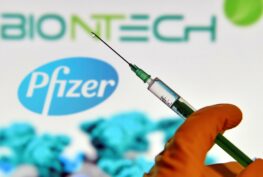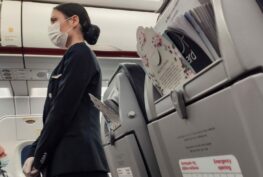Opinion | Commentary by Dr. Siegel
Did President Trump return to work too soon after coming down with Covid-19? The Centers for Disease Control and Prevention in August updated its guidelines for health-care workers recovering from the disease. The CDC recommends that for those with mild to moderate illness, returning to work is permissible when “at least 10 days have passed since symptoms first appeared and at least 24 hours have passed since last fever without the use of fever-reducing medications and symptoms (e.g., cough, shortness of breath) have improved.” The CDC also notes that “a test-based strategy is no longer recommended because, in the majority of cases, it results in excluding from work health care professionals who continue to shed detectable SARS-COV-2 RNA but are no longer infectious.”
No one would deny that doctors, nurses and support staff are essential workers, but it’s obviously unwise to return to a hospital or medical office if you are still contagious with Covid. Few would deny, either, that the president is an essential worker. He told me as much Friday in his first on-camera interview since he got sick. He had been concerned about how the disease could have interfered with his ability to do his job: “I didn’t have a problem with breathing, which a lot of people seem to have. I had none of that. But I didn’t feel very vital. I didn’t feel like the president of the U.S. should feel.”
Mr. Trump said that at Walter Reed hospital, the lung scans initially showed congestion, but he felt better after taking the Regeneron cocktail of synthetic antibodies. His physician, Sean Conley, released a letter Monday stating that the president tested negative “on consecutive days” on the Abbott BinaxNOW antigen test—and, more important, that the president’s viral cultures continued to be negative and there was no detectable viral replication.
A White House official told me that the president had “off the charts” antibodies on samples collected after he received the Regeneron infusion. All indications (including multiple viral and genetic tests) were that the virus was no longer viable or infectious after that. This finding, coupled with the promising early results of trials from Eli Lilly and Regeneron, has encouraging implications for early Covid-19 treatment, especially in the elderly and high risk groups.
It is clear by both the CDC criteria as well as the multiple laboratory analyses of the virus itself that Mr. Trump is no longer contagious.
The president told me in a late July interview that he was more excited about therapeutics in the short term even than vaccines. He said he thought a day could come soon when a patient might receive a treatment for Covid and walk out of the hospital the next day. I thought he was too hopeful. But he was prescient.
Monoclonal antibodies are the October surprise for the science of Covid, rather than for the politics.
Dr. Siegel is a clinical professor of medicine and medical director of Doctor Radio at NYU Langone Health, a Fox News medical correspondent, and author of “COVID: The Politics of Fear and the Power of Science.”






No Comments